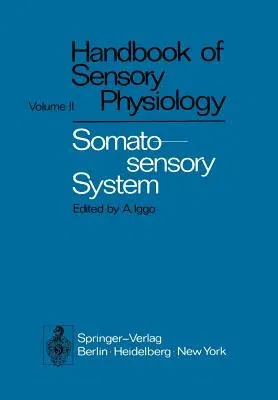Somatosensory System (Softcover Reprint of the Original 1st 1973)Paperback - Softcover Reprint of the Original 1st 1973, 7 December 2011

Qty
1
Turbo
Ships in 2 - 3 days
In Stock
Free Delivery
Cash on Delivery
15 Days
Free Returns
Secure Checkout
Part of Series
Handbook of Sensory Physiology
Print Length
852 pages
Language
English
Publisher
Springer
Date Published
7 Dec 2011
ISBN-10
3642654401
ISBN-13
9783642654404
Description
Product Details
Book Edition:
Softcover Reprint of the Original 1st 1973
Book Format:
Paperback
Country of Origin:
NL
Date Published:
7 December 2011
Dimensions:
24.41 x
16.99 x
4.37 cm
ISBN-10:
3642654401
ISBN-13:
9783642654404
Language:
English
Location:
Berlin, Heidelberg
Pages:
852
Publisher:
Weight:
1356.24 gm

